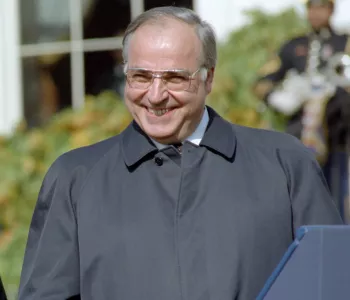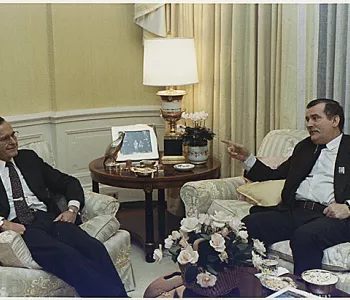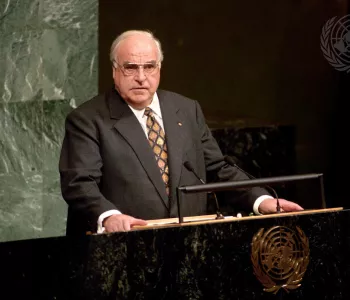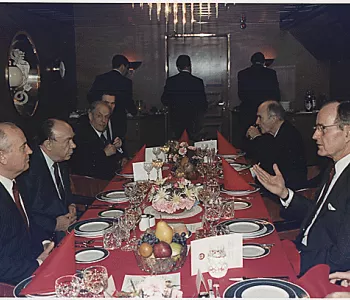d'Vinci

Havel, Vaclav 1936- 2011
Vaclav Havel was a leading figure in the Czechoslovakian "Velvet Revolution" of 1989. Havel became Czechoslovakia's first democratically elected President, and served in that position from 1992-2003.

Havel was born in Prague. Following the Moscow-backed coup of 1948 he and his family were shunned for having been wealthy capitalists and he had difficulties studying beyond the basic level, but took evening classes and studied briefly at the Czech Technical University (1957). After military service (1957-59) he worked as a stagehand in Prague and studied drama by correspondence. His first publicly performed play was The Garden Party (1963). In 1964 he married Olga Splichalova.
Following the suppression of the Prague Spring in 1968 he was banned from the theatre and became more politically active. This culminated with the publication of the Charter 77 manifesto. His political activities cost him five years in prison. He was a leading figure in the so-called Velvet Revolution of 1989. On December 29, 1989, as head of the Civic Forum, he was elected president by the Federal Assembly.
In the free elections of 1990 he retained the presidency. He strongly supported the retention of the federation of the Czechs and the Slovaks, despite increasing tension. On July 3, 1992 the federal parliament did not elect Havel - the only candidate for presidency - due to a missing support by Slovak MPs. After the Slovaks had issued their Declaration of Independence, he resigned as president on July 20.
When the Czech Republic was created he stood for election there on January 26, 1993, and won. Despite illness and three operations he was re-elected in 1998. He chose to leave office after his term ended on February 2, 2003; Václav Klaus, one of his greatest political opponents, was appointed his successor on February 28, 2003.




